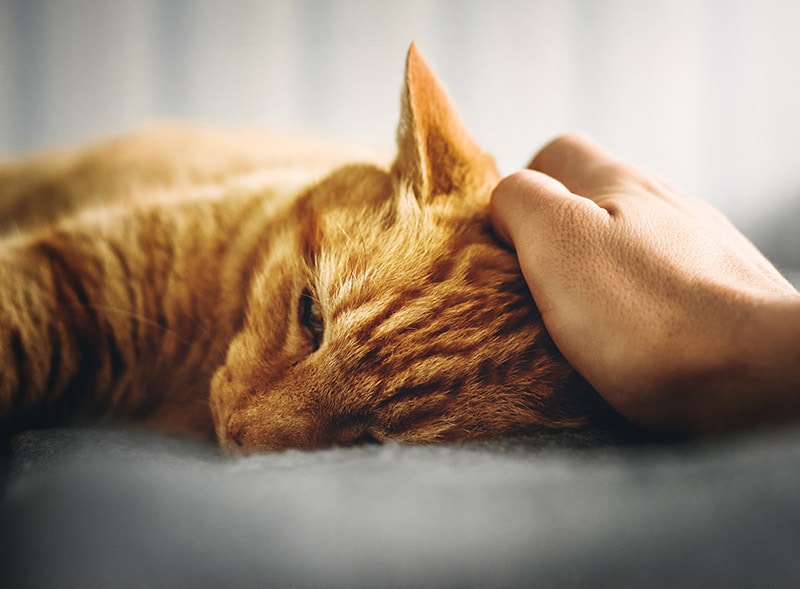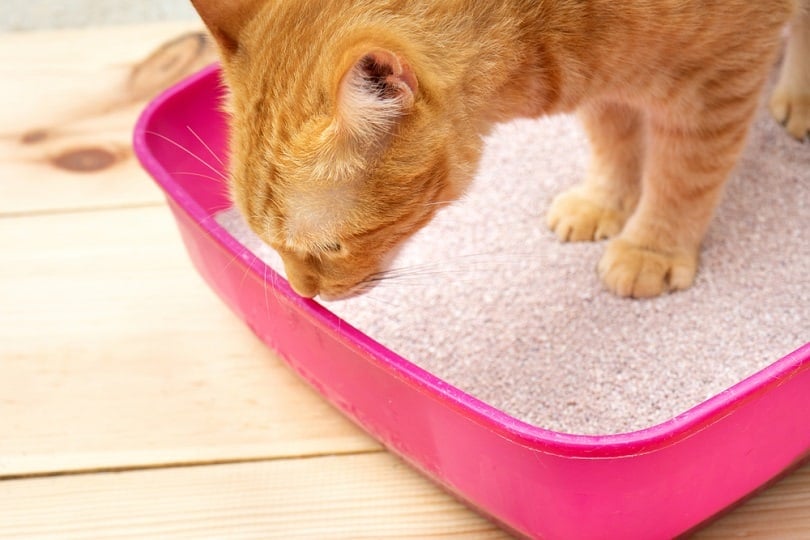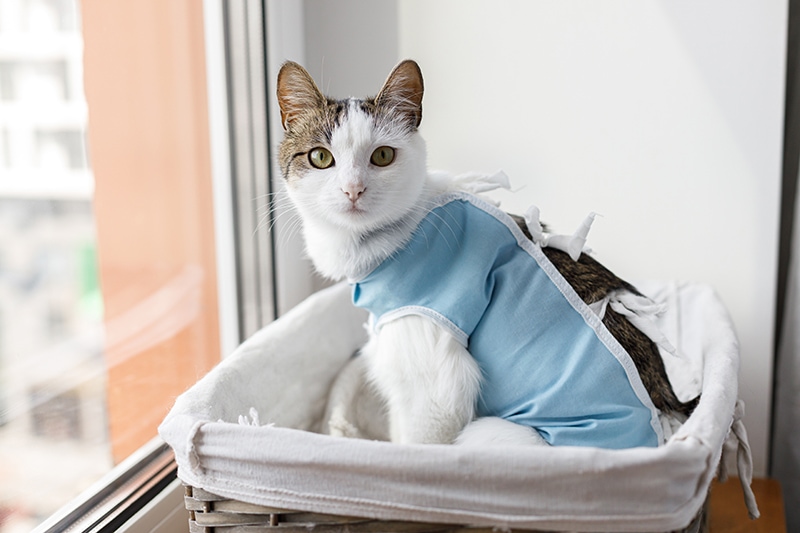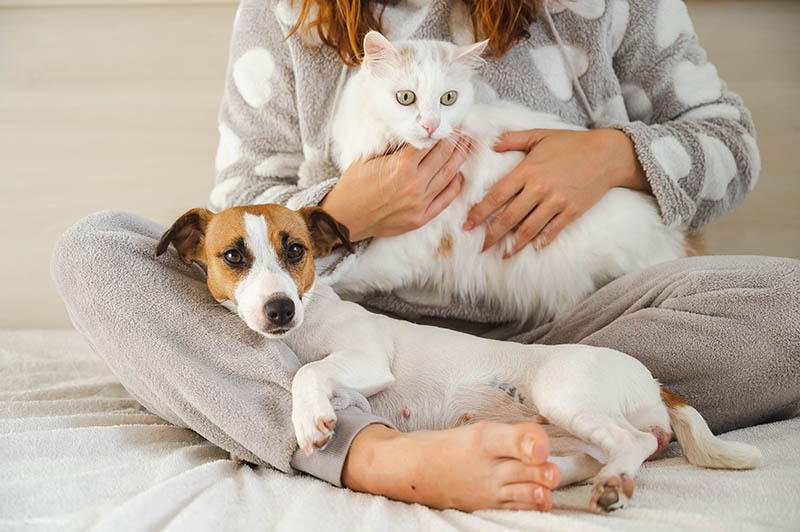My Cat Killed a Mouse! 4 Vet-Reviewed Tips on What to Do Next
Updated on
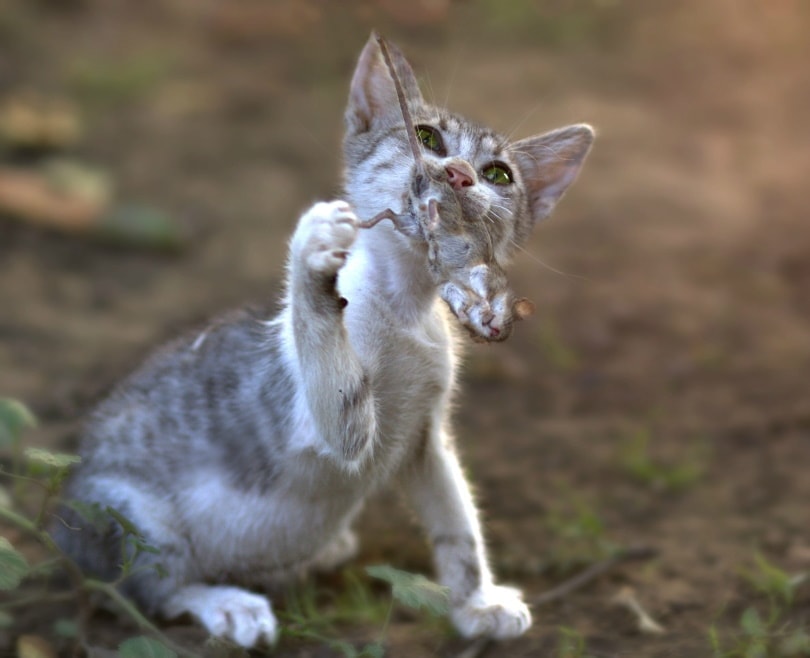
Did your cat recently leave you a “gift?” Cats are natural hunters, so it was bound to happen eventually. Now you’re left with cleaning up the mess. Not exactly the best gift, is it?
You could pick up the mouse with some gloves and toss it, but there’s a better way—one that disinfects the area and leaves behind no trace of contamination. And it only takes four steps. Trust us, it’s best to go this way when dealing with dead rodents. Let’s get started.
 The 4 Tips on What to Do if Your Cat Killed a Mouse
The 4 Tips on What to Do if Your Cat Killed a Mouse
1. Grab Some Gloves and Practice Excellent Hygiene
Before touching anything, grab some gloves. They can be disposable or rubber. There are certain illnesses that rodents may transfer to people as well as your cat, so it’s important to be cautious. Pregnant women and ill or immunosuppressed individuals should be particularly careful and ideally avoid any contact with rodents, their urine, and feces. If you are in this category, please consult with your doctor.
After cleaning and disposing of the mouse or their droppings, it’s important to change your clothes and wash your hands thoroughly, despite wearing gloves.
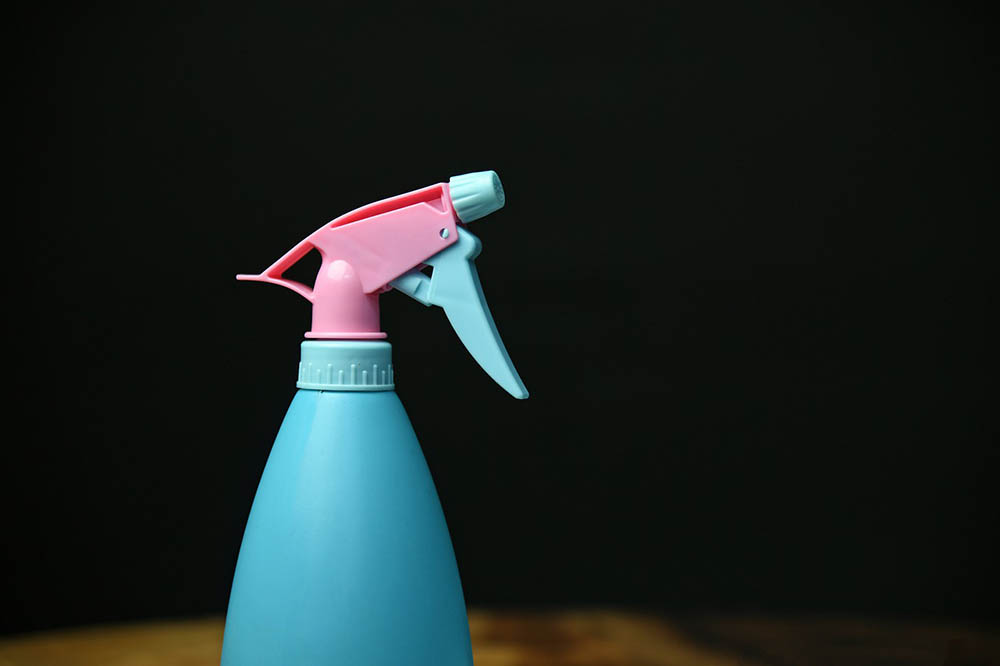
2. Spray the Affected Area (Including the Mouse)
Next, grab a disinfectant spray. The spray can be an all-purpose cleaner, provided the word “disinfectant” is on the label. You can also make a bleach solution of one part bleach to nine parts water.
If you use a disinfectant spray, make sure you keep the disinfectant far away from your cat and other pets, and never use it in an area they have access to. If they do get in contact with it, speak to your vet immediately, as besides directly licking it from the floor, they may get it on their paws or fur and ingest it through grooming.
Using your disinfectant spray, spray the area, including the mouse and droppings, if any. Leave for 5 minutes while the spray works its magic.
3. Grab Two Plastic Bags
Place the dead mouse in a plastic bag and seal it tight. Place the bag containing the mouse into the other empty bag and seal that one as well.
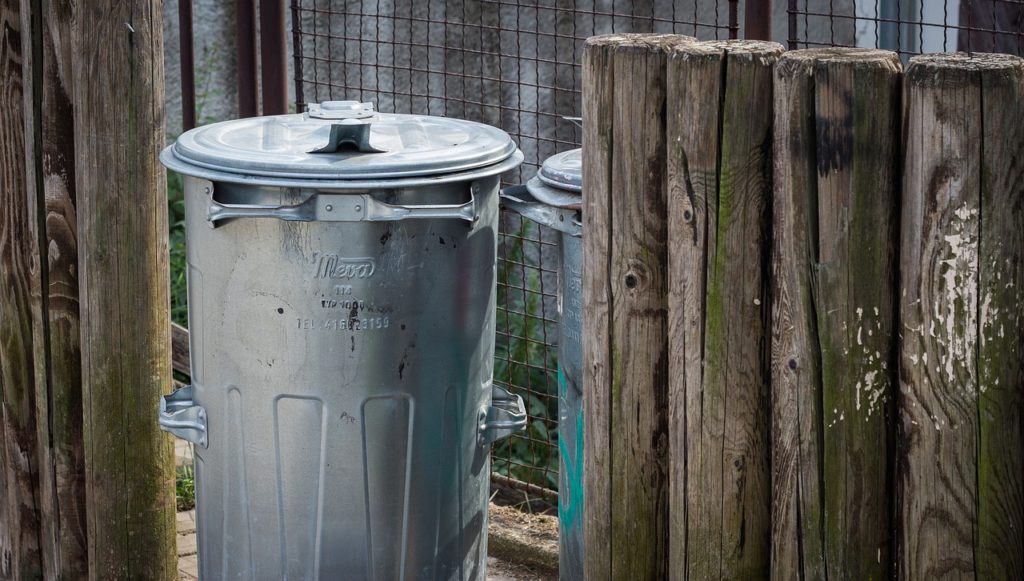
4. Dispose of the Mouse
Throw the mouse away in a covered trash can regularly picked up by the city, alongside the gloves and any other materials you used in the process.
 Frequently Asked Questions
Frequently Asked Questions
The Mouse Is Dead, But Is My Cat OK?
It’s unlikely your cat will become ill from killing a mouse, but it does happen sometimes, particularly if they eat the mouse. This is typically caused by rodenticides or rodent illnesses.
Rodenticides
Nobody wants mice scurrying about their houses at will, so people commonly set mouse traps that include rodenticides. Unfortunately, poison affects other animals, not just the ones being poisoned.
The challenging part is determining if a mouse was even poisoned to begin with. There’s no way to tell unless there is clear evidence of rodenticides being used either by you or your neighbors or if your cat unfortunately starts showing signs of illness.
The good news is that ingesting rodenticides through another animal is less harmful than directly ingesting the poison. Still, how your cat reacts depends on how much poison the mouse ate, whether your cat ate the whole mouse or is regularly eating mice that are being poisoned. Farm cats that are frequent hunters have a higher risk of being exposed to rodenticides. Some poisons cause bleeding disorders and weakness due to inhibition of vitamin K, while others may cause neurological signs.
Generally, your cat is probably fine if they only killed the mouse and didn’t eat it. But it’s a good idea to call your veterinarian anyway, to be sure.
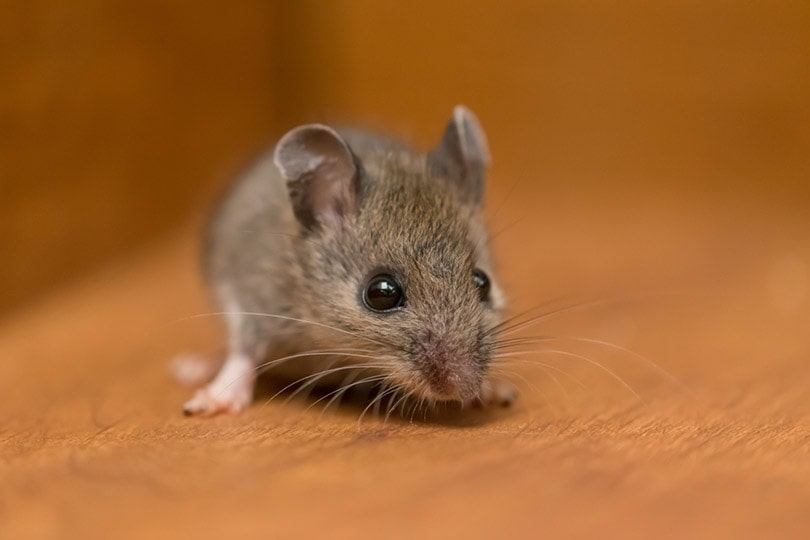
Rodent Illnesses
On top of poisons, your cat could become ill from contracting various illnesses from rodents. These may include viral and bacterial infections or parasitic disease that can be transferred from one species to another. A few common rodent illnesses include:
It’s important to understand the health risks for your cat if they hunt or eat rodents and also the risks this may pose to human health. As you can see from the list of diseases above, there are many of them which are classed as zoonoses, meaning people can contract them, either directly from the rodent by contact with their feces or urine, or from the cat. If your cat is an avid hunter and you have children, immunocompromised family members, or any women in your home that may be pregnant, it’s important to consult with your doctor about the potential risks and precautions you should take. Speak to your veterinarian about the ways to protect your cat from these illnesses as well, and it will help keep both your four legged and human family members safe. Signs of Rodent Illnesses Thankfully, many rodent illnesses are treatable for your cat. But it helps to know some common signs of rodent illness to properly monitor your kitty. Depending on the underlying illness, some cats may show no signs of illness at all, while they can transfer it to other pets or people. Other diseases may cause a fever, enlarged lymph nodes, negative gastrointestinal and neurological signs, jaundice, breathing difficulties, and many more. It’s hard to keep cats away from mice, especially indoor-outdoor kitties. After all, cats are natural-born hunters, and it’s their instinct to prey on rodents. So, it’s up to you if you want your cat to eat mice while wandering the outdoors, being aware of the risks we have discussed for their health and yours. However, we don’t recommend it if you can help it and want to do your best at avoiding illness. A mouse or two now and then isn’t a huge deal as long as you’re aware of the potential threats. Opting for humane rodent-proofing methods is a good way to keep everyone involved as safe as possible. As we said, keeping your cat from hunting mice is tough. Cats are obligate carnivores and live for the hunt. Why else would they stalk and pounce on your feet as you walk by? You can easily mimic this hunt as a cat owner with regular play sessions and proper cat toys. It will take some work, but a solid play session will send your cat to the couch for their afternoon nap instead of on the prowl for a furry snack. Another way to keep your cat from hunting mice is by keeping them inside. This may only work for some people since some adopt cats for rodent control, like in rural areas. Some urban neighborhoods accept free-range kitties, so the mouse population might be lower in these neighborhoods. But other communities prefer cats strictly indoors, so your cat could have more opportunities to find a mouse. Your cat is also at significantly more risk of injuries when roaming outdoors, and considering a secure catio may be a solution for this problem. It will give your cat the enrichment they require while keeping them safe and will reduce the detrimental impact your cat has on the local wildlife population, particularly birds. In any case, keeping your kitty indoors limits your cat’s opportunity for natural hunting behavior. Finding a dead mouse isn’t going to put a smile on our faces, but when you own a cat, it is what it is. The most important thing to take away is never to touch a mouse with your bare hands. Always use gloves and disinfectant spray and dispose of the rodent in a double bag. Once the deed is done, you can monitor your cat for any signs of illness. Call your veterinarian for further instructions if you believe your cat is sick, and consult with your doctor if you are worried about your own health. Featured Image Credit: Piqsels
Should I Let My Cat Eat Mice?
How to Stop Your Cat From Hunting Mice?


 Frequently Asked Questions
Frequently Asked Questions